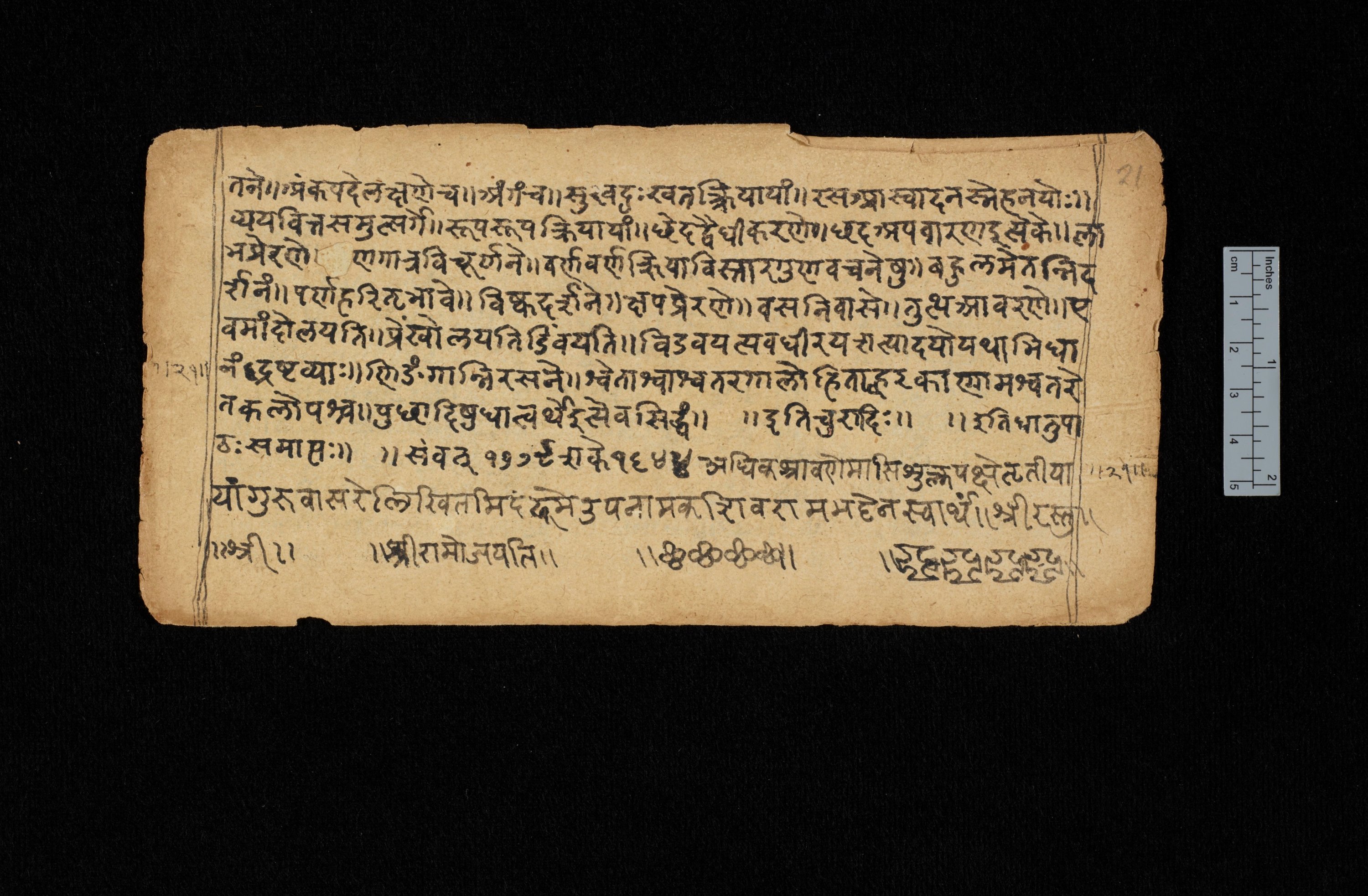- Nov 17, 2019
- 10,807
- 6,467
- 136
Something for you wordier folks.
"Classical linguist Pāṇini all but described the rules of Sanskrit in his momentous 5th century B.C. work the Aṣṭādhyāyī. For more than two millennia however, one set of problematic instructions — meant for resolving rule conflicts — instead made the well-oiled language machine misfire.
Enter linguist and doctoral candidate Rishi Rajpopat, who detailed the discovery of his solution amid the complexities of Sanskrit scholarship in his dissertation published by the University of Cambridge on Wednesday."
-----
" In his work, Pāṇini left instructions to sort out cases of conflicting rules, traditionally interpreted to mean that “in the event of a conflict between two rules of equal strength, the rule that comes later in the serial order of the Aṣṭādhyāyī wins.” "
-----
"
When he hit a wall in his research, Rajpopat followed advice from his mentor, “If the solution is complicated, you are probably wrong.”
In a statement accompanying the study, Rajpopat described taking a break from his work to enjoy the summer. He then experienced a eureka moment when he returned to work.
“As I turned the pages, these patterns starting emerging, and it all started to make sense,” he said.
Rajpopat took a very close reading of the rule. When two rules might apply, Rajpopat discovered “the right-hand side operation prevails.”"
-----
"“I have come to realize that the most important component of good research is not more learning (or learning more?) but in fact, unlearning,” Rajpopat continued. “It is only in identifying those parts which we don't understand fully and dismantling our existing knowledge / epistemological frameworks that the potential for discovery lies. It is this willingness to unlearn and relearn and to repeat this process as many times as required that enabled me to solve this puzzle.”"

 www.courthousenews.com
www.courthousenews.com
...
"Classical linguist Pāṇini all but described the rules of Sanskrit in his momentous 5th century B.C. work the Aṣṭādhyāyī. For more than two millennia however, one set of problematic instructions — meant for resolving rule conflicts — instead made the well-oiled language machine misfire.
Enter linguist and doctoral candidate Rishi Rajpopat, who detailed the discovery of his solution amid the complexities of Sanskrit scholarship in his dissertation published by the University of Cambridge on Wednesday."
-----
" In his work, Pāṇini left instructions to sort out cases of conflicting rules, traditionally interpreted to mean that “in the event of a conflict between two rules of equal strength, the rule that comes later in the serial order of the Aṣṭādhyāyī wins.” "
-----
"
When he hit a wall in his research, Rajpopat followed advice from his mentor, “If the solution is complicated, you are probably wrong.”
In a statement accompanying the study, Rajpopat described taking a break from his work to enjoy the summer. He then experienced a eureka moment when he returned to work.
“As I turned the pages, these patterns starting emerging, and it all started to make sense,” he said.
Rajpopat took a very close reading of the rule. When two rules might apply, Rajpopat discovered “the right-hand side operation prevails.”"
-----
"“I have come to realize that the most important component of good research is not more learning (or learning more?) but in fact, unlearning,” Rajpopat continued. “It is only in identifying those parts which we don't understand fully and dismantling our existing knowledge / epistemological frameworks that the potential for discovery lies. It is this willingness to unlearn and relearn and to repeat this process as many times as required that enabled me to solve this puzzle.”"

Grad student solves 2,500-year-old Sanskrit grammar conflict
The discovery resolves an ancient riddle and may finally enable researchers to load Sanskrit into computers.
...



